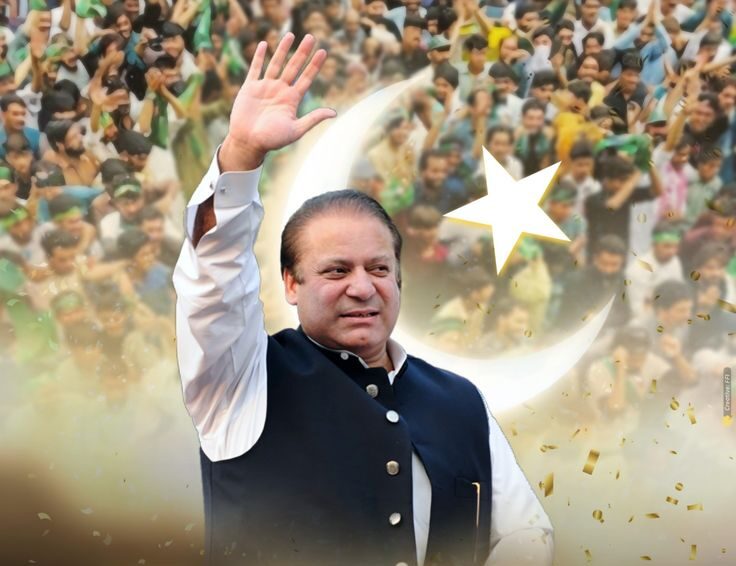Pakistan Muslim League-Nawaz (PML-N) supremo Nawaz Sharif unveiled a comprehensive nine-point agenda aimed at addressing the nation’s ongoing crises. Speaking at a public gathering at Minar-i-Pakistan, Mr. Sharif outlined his vision for combating inflation, poverty, and unemployment, adopting a reconciliatory tone and emphasizing the importance of economic stability and diplomatic relations, especially with India.
During his speech, Mr. Sharif refrained from explicitly naming the individuals he believed played a role in his ouster, but he did question their involvement in what he deemed “trumped-up charges.”
While the focus was on his plans for the nation’s future, Mr. Sharif’s speech began with a recap of his journey, beginning with his return from London to Lahore, where he was granted temporary leave to travel abroad for medical reasons in 2019. In his speech, Mr. Sharif articulated his commitment to eradicating the country’s pressing issues and offered a glimpse of his future blueprint for Pakistan.
The first point of Mr. Sharif’s agenda revolved around a reduction in government and administrative expenditures, signaling a commitment to fiscal responsibility and efficient governance. This step aims to streamline public spending and enhance the government’s financial management.
The second point focused on increasing income and revenues while introducing fundamental reforms in the taxation system. This has been a recurrent issue in Pakistani politics, with many leaders addressing the need for tax reform but facing challenges in its implementation.
The third item on Mr. Sharif’s agenda stressed the urgency of taking immediate measures to boost the country’s exports. Strengthening Pakistan’s export sector is pivotal for achieving sustainable economic growth. Overcoming export stagnation has been a consistent concern for successive governments in Pakistan.
In his fourth agenda point, Mr. Sharif emphasized the importance of revolutionizing the information technology sector, acknowledging that IT has become a driving force for economic development in the modern world. The expansion of technology-related industries can help drive economic growth and job creation.
Reducing energy costs, specifically electricity and gas prices, formed the fifth point of Mr. Sharif’s plan. This is a crucial area as energy prices significantly impact the cost of living for ordinary citizens and the overall competitiveness of industries.
The management of loss-making state-owned enterprises (SOEs) was another notable inclusion in Mr. Sharif’s agenda. While privatizing large SOEs can be complex, addressing the issues surrounding these entities is essential for Pakistan’s economic health. The World Bank recently highlighted the challenges posed by inefficient SOEs, which continue to drain public resources.
Creating employment opportunities for youth and women emerged as a key agenda item. A World Bank report highlighted the increase in poverty in Pakistan, with 12.5 million more people falling into poverty due to poor economic conditions, taking the total to 95 million Pakistanis living in poverty.
Mr. Sharif’s eighth point underscored the need for a revolution in the agriculture sector through modern technology. Despite Pakistan’s agrarian nature, it has struggled to meet local food demands effectively.
The ninth and final point in Mr. Sharif’s agenda addressed the long-standing issue of reforms in the justice system. He acknowledged the need for a more efficient and accessible judicial system, a subject he had previously highlighted. Reforming the legal system remains a challenge, but Mr. Sharif’s return to the political scene may rejuvenate the discussion on this vital matter.
In his political comeback, Mr. Sharif offered a comprehensive vision for Pakistan’s future, addressing critical economic and social issues. As the nation looks toward the upcoming elections, his nine-point agenda sets the stage for a thought-provoking and spirited political showdown, potentially charting a new course for Pakistan’s development and governance.


